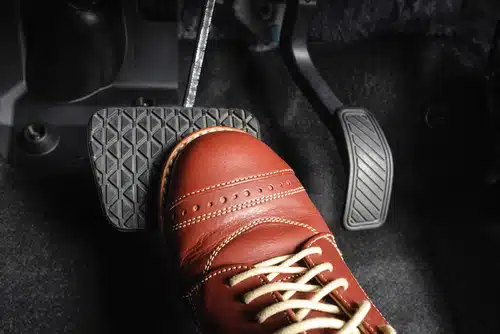Home » Blog » Car » Car Lifestyle » 5 Traps to Avoid When Buying a Car for Business Before EOFY
Categories
Tags
animal welfare
breed profile
buying a car
buying a pet
Car
car accessories
car care
car features
car insurance
Car safety
car sales
car service
cat
cat behaviour
cat body language
Cat Breeds
cat food
cat insurance
comprehensive car insurance
Dog
Dog Behaviour
dog body language
Dog Breeds
dog food
Dog Insurance
dog training
eco friendly cars
Kitten
New Car
pet accessories
pet activities
Pet Adoption
pet breeders
pet days of the year
pet fun stuff
Pet Health
pet insurance
pet parenting
Pet Safety
pet services
Puppy
rescue pets
road safety
road trip
safe driving
Recent Blog:
Facebook Posts
2 days ago
Growing old sometimes means we can’t take care of pets anymore. Find out some advice on what to do when this happens:![]()
![]() Senior Pet Parents – Contingency Plans for Your Pet – bit.ly/44bzwkS
... See MoreSee Less
Senior Pet Parents – Contingency Plans for Your Pet – bit.ly/44bzwkS
... See MoreSee Less
Senior Pet Parents' Contingency Plans for Pets
www.pd.com.au
Sometimes senior pet parents need more downtime. For older pet owners, this can be tricky to navigate if their dog or cat is full of beans and wants to4 days ago
Before you rev up the engine, let’s run through a checklist of things to do before starting your car. Not only do these steps ensure your safety (and that of others around you), but they also help in maintaining your vehicle's longevity.![]()
![]() Driving Tips: Your Checklist Before Starting Your Car -
... See MoreSee Less
Driving Tips: Your Checklist Before Starting Your Car -
... See MoreSee Less
Driving Tips: Your Checklist Before Starting Your Car
www.pd.com.au
Heading out for a drive? Hold up a second! Whether you're dashing off to work, running errands, or embarking on a road trip adventure, there are a few1 week ago
Are intestinal worms setting up camp in your dog’s gut without paying rent? Here’s how to spot the main culprits and get rid of them too:![]()
![]() Preventing, Identifying and Treating Intestinal Worms in Dogs - bit.ly/43YjCKu
... See MoreSee Less
Preventing, Identifying and Treating Intestinal Worms in Dogs - bit.ly/43YjCKu
... See MoreSee Less
Preventing, Identifying and Treating Intestinal Worms in Dogs
www.pd.com.au
Intestinal worms, such as roundworms in dogs are one of the least glamorous topics on the planet. These intestinal parasites that basically use our dogsThe end of the financial year has traditionally been a popular time to nab a bargain when buying a car for a business. This year, the EOFY urgency is cranked up another gear as time is running out for a significant business tax write-off incentive in Australia.
There was hope that an extension of the current instant asset write-off and temporary full expensing measures beyond 30 June 2023 would be announced in the recent federal budget. But this hasn’t materialised. Now, businesses looking to capitalise through a vehicle purchase are up against the clock.
If you’re in that boat, here are five traps to avoid if you want your business to benefit from the vehicle purchase long beyond 30 June.
Table of contents

1. Don’t ignore the tax incentive fine print
The devil is in the details of the tax incentives available if you’re buying a car for business purposes this EOFY.
Put simply, a combination of two Australian Taxation Office (ATO) rules – the instant asset write off and temporary full expensing – means businesses with a turnover of less than $5 billion may be able to claim an immediate deduction for the cost of buying a depreciating asset in their tax return.
So instead of spreading the deduction out over the life of the asset, you may be able to claim an immediate deduction if you’re eligible.
And that’s the key word: eligibility.
Will you really get deductions if buying a car for business?
Let’s look at some significant catches according to the ATO:
- For passenger vehicles (designed to carry a load of less than one tonne and fewer than nine passengers), the ‘car limit’ applies. This means deductions are capped at $64,741 in the 2022/23 financial year. That cap does not apply to larger commercial vehicles.
- The vehicle must be first used or installed ready for your use for a taxable purpose by 30 June 2023. In other words, you can’t just have paid for the asset by 30 June. You must actually have it and be ready to use it before the deadline.
- For second-hand vehicles, only businesses with a turnover of less than $50 million are currently eligible.
- The deduction only applies to the business use of a vehicle. Tread carefully if you’ll also be using it for personal use.
- From 1 July 2023 to 30 June 2024, a reduced $20,000 instant asset write-off for small businesses with an annual turnover below $10 million was announced in the recent budget.
Needless to say you should refer to the ATO website or speak to your accountant to understand how the current eligibility rules apply to you and your business.
But given current delivery wait times on new vehicles, if you want to buy a vehicle and have it in your possession ready for use by 30 June this year, you may want to consider our second tip…

2. Don’t overlook used vehicles
Used vehicle prices spiked massively during the pandemic but have been falling in the early months of 2023.
Another obvious advantage of a used vehicle, alluded to above, is the time it will take to get your hands on it. Wait times on many new vehicles are still in excess of several months or much longer in some cases.
For example, if you have your eye on Australia’s best-selling new car, the Ford Ranger, Ford says it’s “experiencing extended wait times for models like the Ranger Platinum, Ranger Wildtrak V6 and Ranger Raptor”. Things aren’t any better for the second most popular car in Australia, the Toyota Hilux. There are “unprecedented wait times for the delivery of new vehicles” according to Toyota.
If you’re paying for a vehicle with the help of business finance, most lenders will still accept a used vehicle as loan security. But there may be an age cut-off for the vehicle or you might need to accept a shorter loan term.
If you’re buying used, be sure to have the vehicle thoroughly checked before committing.
3. Don’t forget the bigger picture
We don’t always make our best decisions with the clock ticking. If you’re looking into buying a car for business in the EOFY car sales, it’s worth pausing for thought. Take a step back to consider:
- Is the vehicle a match for what your business actually needs, both now and in the future?
- If it’s a specialised vehicle, is there someone at the business with the skills to drive or operate it?
- Can you afford it… can you really afford buying a car for business?
- Does it make sense for you to buy the vehicle in your own name or under the business’s? (Time to tap your accountant on the shoulder again?)

4. Don’t leave business car finance to last minute
Time is money at this time of year. The good news is it’s often possible to get business finance approved within a few days. But only if your application is straightforward for the lender.
That means being able to provide them with the documents they need when you apply. Remember, you’ll be just one of a flock of businesses looking for end-of-year finance. If the lender needs to come back to you for additional information, this can really slow things down.
The exact information you’ll need to provide will depend on the lender and the loan amount. Generally, it’s a good idea to have key documents at hand such as:
- ID documents
- Bank statements
- Business financial statements
- ATO portal statements
- Personal tax returns, ATO Notice of Assessment and proof of income
- Details of the vehicle being purchased
It’s also a good idea to do a quick credit score check before applying. Your personal credit rating could impact your eligibility for a business loan.
5. Don’t underestimate the full cost of buying a car for business
While many ongoing vehicle running costs are tax deductible, remember to factor these costs into your budget for the vehicle. Think registration, car servicing and repairs, petrol, driver wages, and insurance.
For example, if you’re buying a business vehicle with finance, covering it with comprehensive car insurance will likely be a requirement for the lender.
Finally, if you’ll be using the vehicle for a mixture of business and personal use, remember you need to account for that at tax time (hello again, accountant). Only costs for the business portion will be deductible.
Sean Callery is the Editor of Money.com.au. He’s a finance writer and editor with more than 15 years of international experience across Australia, the UK and Ireland. His experience spans banking, lending, investing and insurance, as well as legal and consumer affairs.
Share On:




